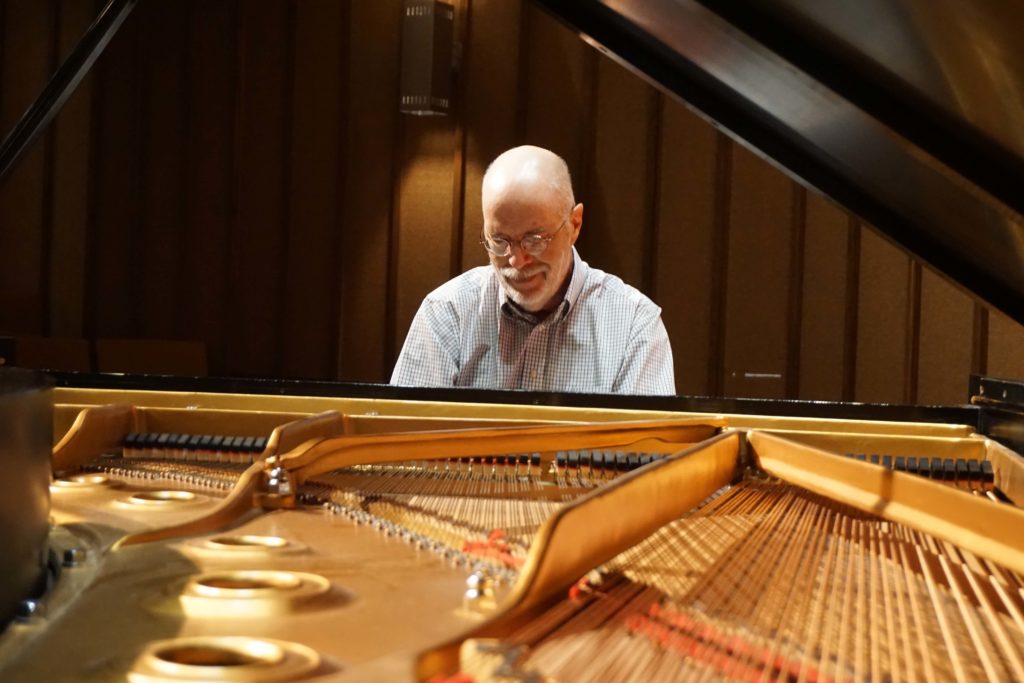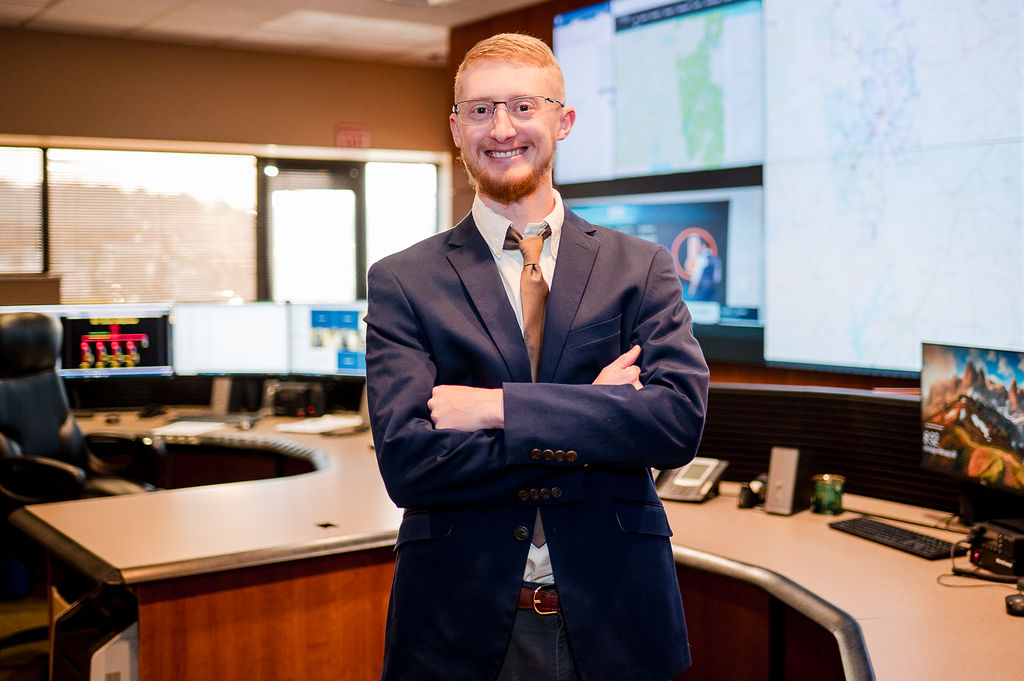
Many people spend decades dreaming of the things they will do upon retirement. Traveling. Volunteering. Picking up a new hobby. Going back to college and earning a degree doesn’t usually enter their minds.
But that’s exactly what recent University of West Georgia graduate Sam Smith did thanks to Georgia’s free tuition program for students 62 years or older.
“I heard about the policy long ago and always had it in the back of my mind that I wanted to go back and take classes when I retired,” said Smith, who recently received his Bachelor of Music in Piano Performance from UWG’s College of Arts and Humanities, now known as the College of Arts, Culture and Scientific Inquiry.
This wasn’t Smith’s first time in college or his first bachelor’s degree. It wasn’t even his first foray into music.
“I have two other bachelor’s degrees – one in music from East Carolina University and one in computer science from Georgia State University,” he said. “I wanted to be a high school band director, but that was not a good fit for me. I went back to school to get the computer science degree, and that is how I made my living.”
This time around, Smith decided to try a new instrument.
“Clarinet was my instrument back in 1976, but piano is much more versatile,” he said. “As a soloist, piano is just more fun and rewarding, and I can also accompany other people.”
Smith described the recitals as both the most challenging and rewarding parts of his experience.
“The opportunity to play in student recitals is just not available outside of college,” he observed. “Also, a music degree requires a lot of hard work before you even attend your first class. I had to audition for the piano program by playing two pieces from memory.”
Although the University System of Georgia’s Board of Regents policy has existed since 1983, not a lot of people know about it, which caused Smith to receive conflicting information from time to time. That’s where UWG’s Center for Adult Learners and Veterans (CALV) came into play. CALV helps with non-traditional students’ transition to UWG by providing assistance with technology and helping them navigate processes while connecting them to resources to help them thrive while attending UWG.
CALV Director Danny Gourley Fischer described the university’s relationship with these senior citizen learners as beneficial for everyone.
“We firmly believe the presence of the older, wise learners enhances the classroom experience for all parties,” he said. “These students bring valuable experience that helps connect the theories our great faculty teach in the classroom to practical applications in a variety of ways.”
Smith said not much has changed about college since the ’70s, but he did notice one positive difference.
“The teachers seem to be more interested in challenging the students and helping them succeed than they were in my youth,” he explained. “Dr. Kevin Hibbard, the chair of the music department, went out of his way to help with my transfer credits and made sure I was on track with the music courses. Dr. Carol Gingerich was my piano teacher. Before I was a student, she helped me prepare for my audition and coached me through my juries and recitals.”
Both Gourley Fischer and Smith encouraged retirees to use their newfound time off by learning new things.
“Whether it’s about completing that first degree as part of a bucket list, pursuing a subsequent degree to keep the brain engaged, or even simply learning a few skills to find greater enrichment in life, we encourage more residents of Georgia to blaze their trails at UWG,” Gourley Fischer said.
What’s next on Smith’s agenda?
“I plan to play piano and make music,” he shared. “As senior citizens, we both have a lot of time yet limited time. Take advantage of the time you have and put it to good use.”





